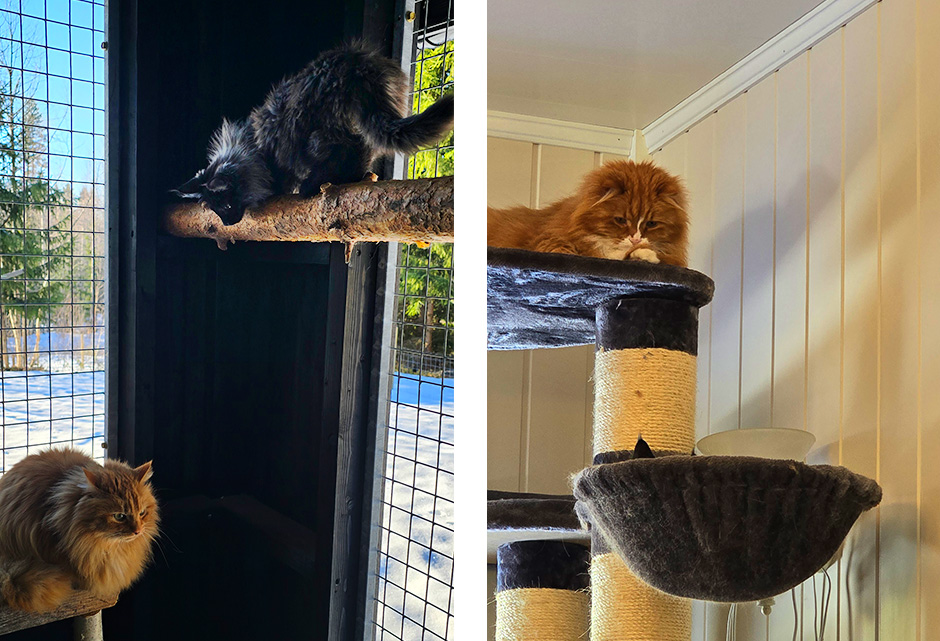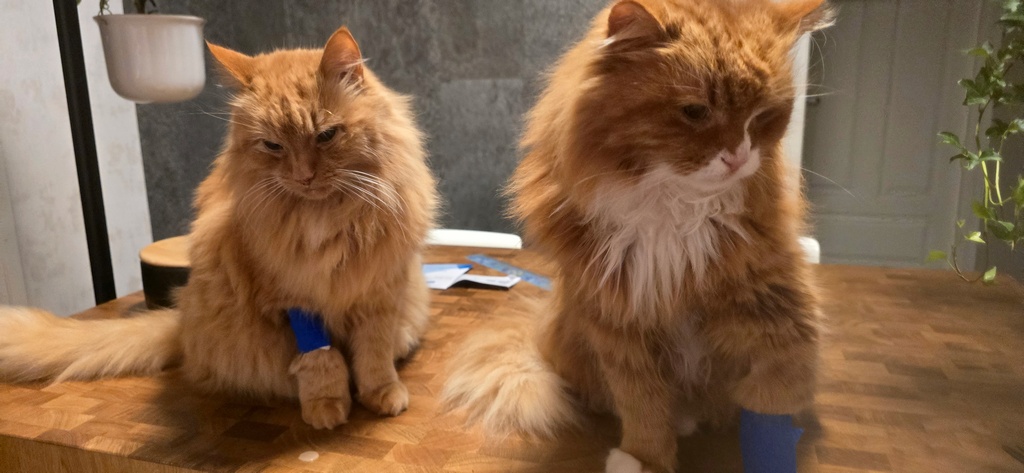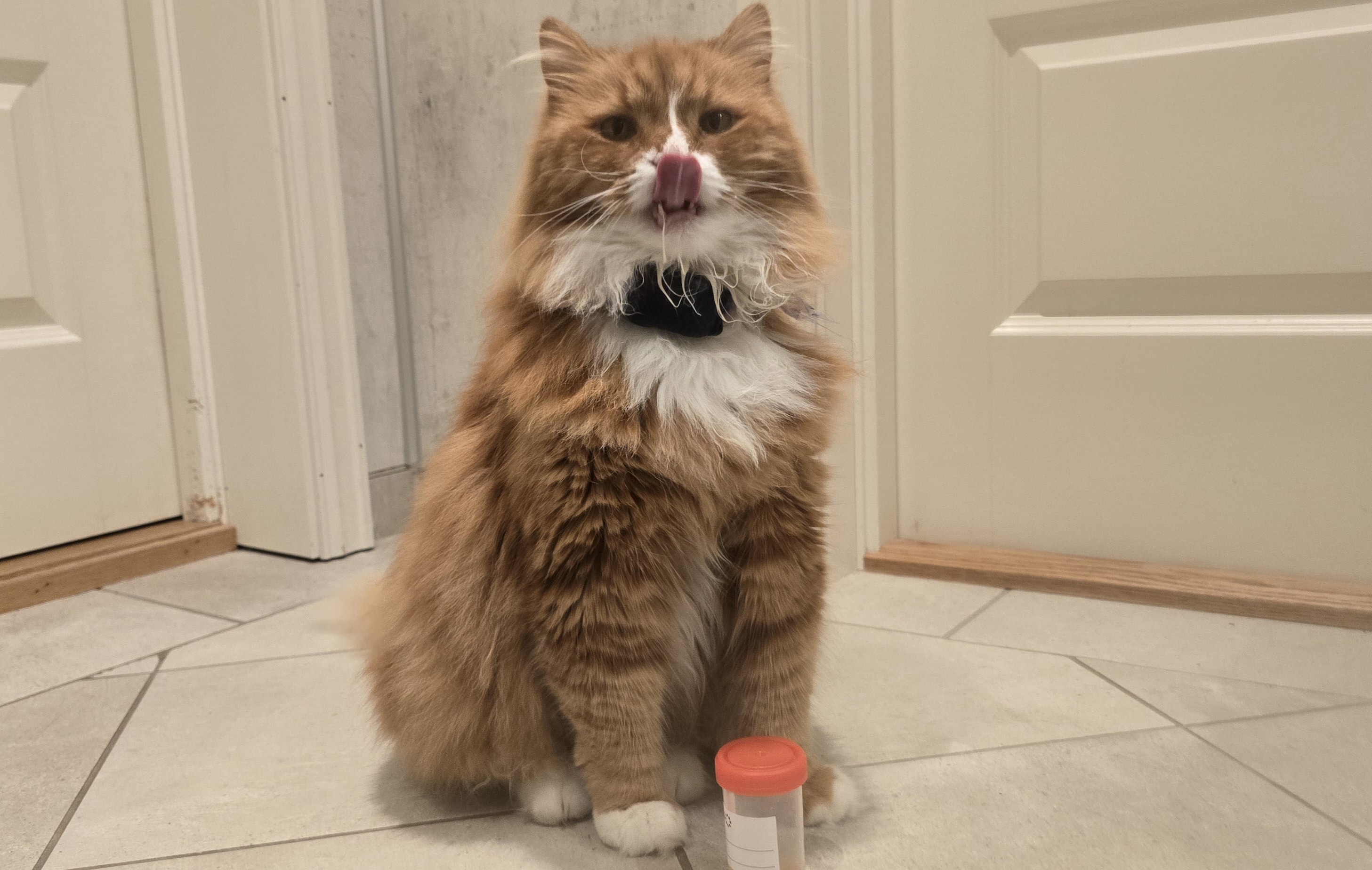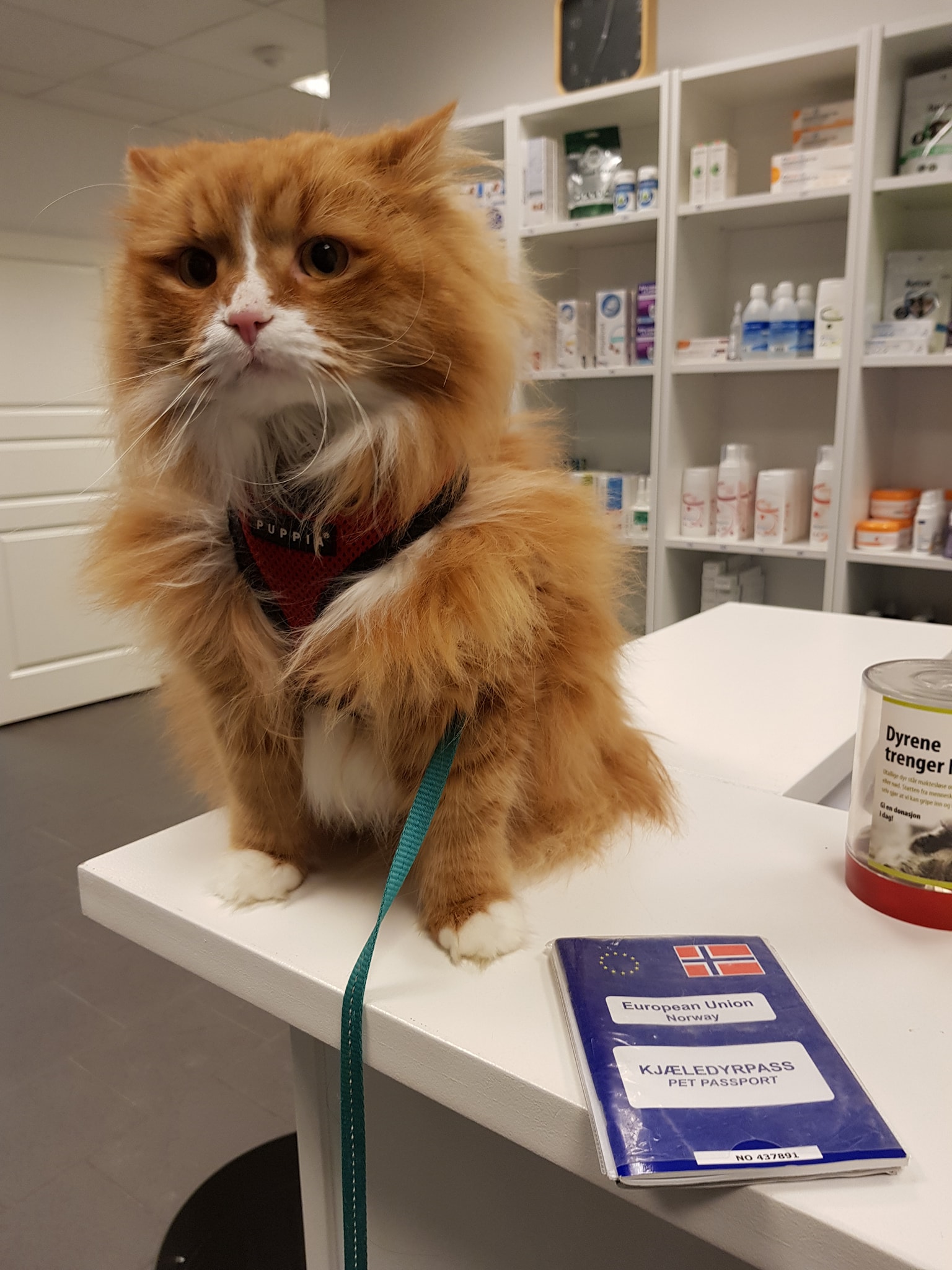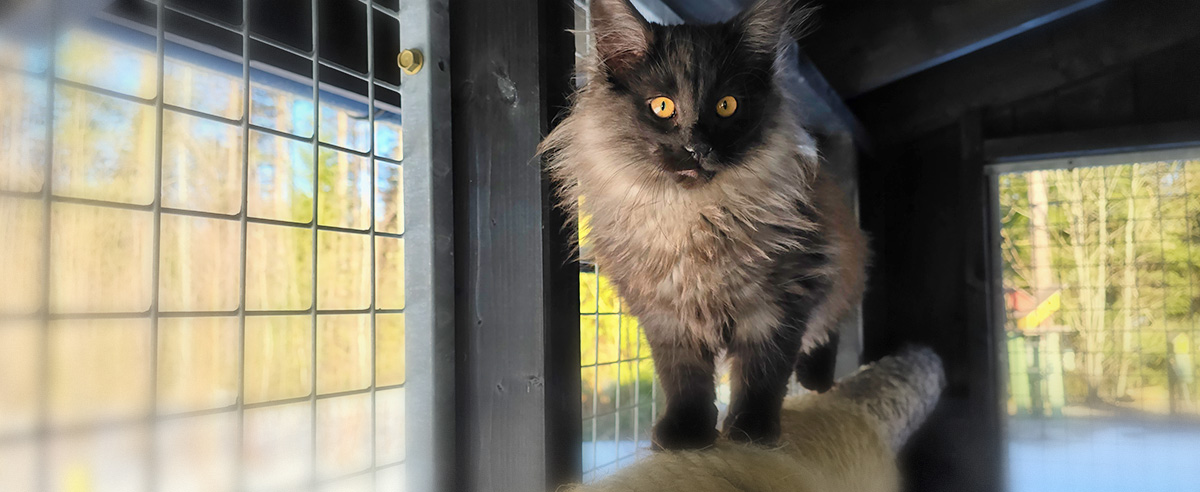
Safety Tips for a Kitten-Friendly Home
A home can be full of dangers for a small kitten. Kittens are curious, climbing high and low, tasting almost everything, and chewing on whatever they find during their adventures in their new home. They explore the world using all their senses and investigate every little nook and cranny. And if you think there’s a place your kitten can’t reach, you’ll soon find out that they absolutely can!
1. Toxic Plants
Many common houseplants are toxic to cats, and some can cause discomfort or diarrhea. A good rule of thumb is to keep kittens away from plants entirely—they don’t need to taste them even once. Make plants inaccessible by moving them out of reach or surrounding them with a temporary barrier like a compost fence. It may not look fancy, but having a safe and happy kitten in your home is worth it!
Here are some toxic plants:
-
Autumn Crocus
-
Azalea & Rhododendron
-
Castor Beans
-
Chrysanthemum
-
Cyclamen
-
Bitter Leaf
-
Ivy
-
Hyacinth
-
Kalanchoe
-
Peace Lily
-
Sago Palm
-
Tulip
-
Yew
-
Impatiens
-
Golden Pothos
-
Dieffenbachia
-
Flamingo Flower (and other species from the same family)
-
Dracaena/Dragon Tree species
-
Lilies
-
Lily of the Valley
-
Daffodils
-
Mistletoe
-
Oleander
-
Sago Palm
-
Christmas Rose
-
Angel’s Trumpet
… and many more.
If you have floor-standing plants, cover the soil with aluminum foil to prevent your kitten from using it as a litter box.
2. Chemicals
Cleaning products, insect sprays, and other household chemicals can be highly dangerous if ingested by a kitten. Always store them in a secure, out-of-reach place.
3. Small Objects
Small toys, buttons, and other tiny items can be swallowed, leading to choking or intestinal blockages. Be cautious with the toys you buy for your kitten—small parts can be chewed off and swallowed. Remember, kittens are natural predators, and it’s easy for them to tear apart a small toy mouse!
4. Cords and Wires
Kittens love playing with cords, but chewing on them can cause electric shocks. Hide or secure all wires. During teething, they may be extra eager to chew, so provide them with safe alternatives like dried muscle treats from the dog section at pet stores.
5. Dangerous Foods
Some foods are toxic to cats, including:
-
Chocolate
-
Onions & garlic
-
Grapes & raisins
Make sure your kitten never has access to these. Choose treats made from pure, natural ingredients—they are best for a kitten’s delicate stomach.
6. Open Windows and Doors
Curious kittens may fall from open windows or doors. Secure all openings to prevent falls or escapes. Also, be cautious when closing doors to avoid accidentally trapping a tiny tail or paw.
7. Other Pets
If you have other pets, especially dogs, supervise their interactions with your kitten to prevent injuries. Smaller pets like birds, guinea pigs, rabbits, or hamsters should never be playmates for kittens, as their sharp claws can easily cause harm.
8. Bathroom and Kitchen Safety
Kittens may be curious about toilets, bathtubs, and sinks, which pose a drowning risk. Always keep toilet lids closed and restrict access to water-filled areas.
In the kitchen:
-
Place knives and forks with the pointy end down in the dishwasher.
-
Never leave sharp knives on the counter.
9. Kitchen Appliances
Kittens may hide inside or around appliances like ovens, microwaves, and dishwashers. Always check before closing doors.
Be extra cautious with stovetops—kittens can jump up and burn their paws. Also, ensure they don’t sneak into the fridge or pantry when you’re not looking.
10. Chimneys and Vents
Secure chimneys and ventilation openings, as kittens may climb in and get stuck. If there’s a hole somewhere, you can be sure they will find it—and squeeze inside!
11. Trash and Waste
Kittens are often drawn to trash bins, which may contain harmful items. Keep trash cans securely closed. Nothing is worse than a kitten getting an upset stomach after eating spoiled food!
12. High Furniture
Kittens love to climb, but they can also fall from high places. Make sure they have safe climbing options, like sturdy scratching posts.
13. Strings and Cords
Toys with strings, ribbons, or cables can be dangerous if swallowed. Always supervise playtime and store these toys when not in use. Also, tie up or secure blind cords and curtain strings—there have been cases of cats accidentally hanging themselves on these.
14. Extreme Temperatures
Kittens are sensitive to temperature changes. Ensure they have a safe, comfortable place to rest, whether it’s hot or cold. Be extra careful with areas like refrigerators, greenhouses, or sunrooms where temperatures can fluctuate.
15. Medications
Store all medications in closed cabinets to prevent kittens from chewing on pills. Don’t leave daily medications on the sink—put them safely away.
Adapting Your Home for a Kitten
Worried about scratch marks on furniture or pulled threads in curtains? Tie up or temporarily remove curtains. Protect expensive furniture with thick blankets. Store away fragile decorations and irreplaceable heirlooms until your kitten is older.
Remember: If you take away a fun activity, replace it with a cat-friendly alternative:
-
If they chew - give them dried muscle treats to gnaw on.
-
If they climb - provide an exciting scratching post or cat tree.
-
If they constantly beg for food - offer a varied diet, such as raw food, which can help them feel fuller for longer.
-
A routine of play, sleep, and meals helps create a happy and well-adjusted cat.
A kitten, like a puppy or a toddler, will get into everything. And if it suddenly gets very quiet? That doesn’t necessarily mean they’re sleeping!
